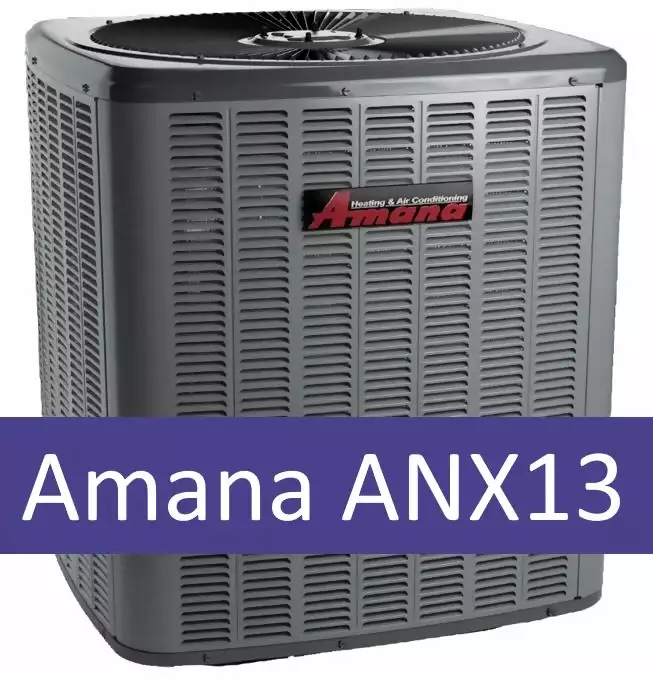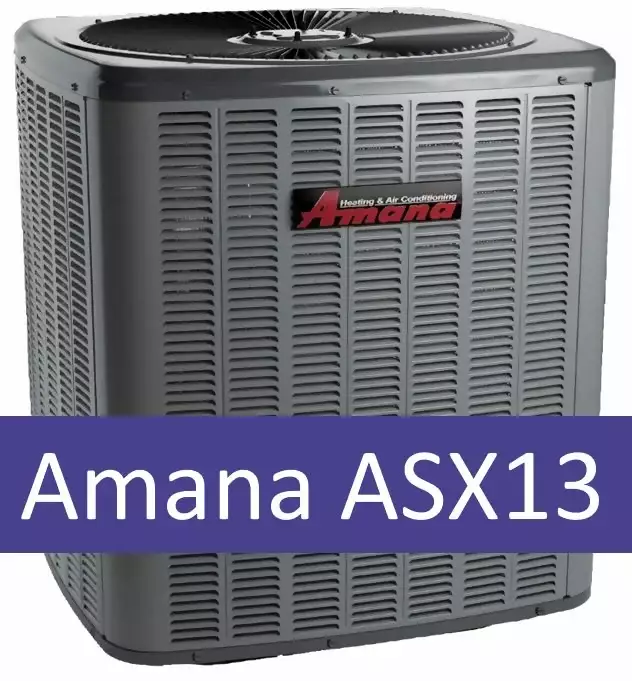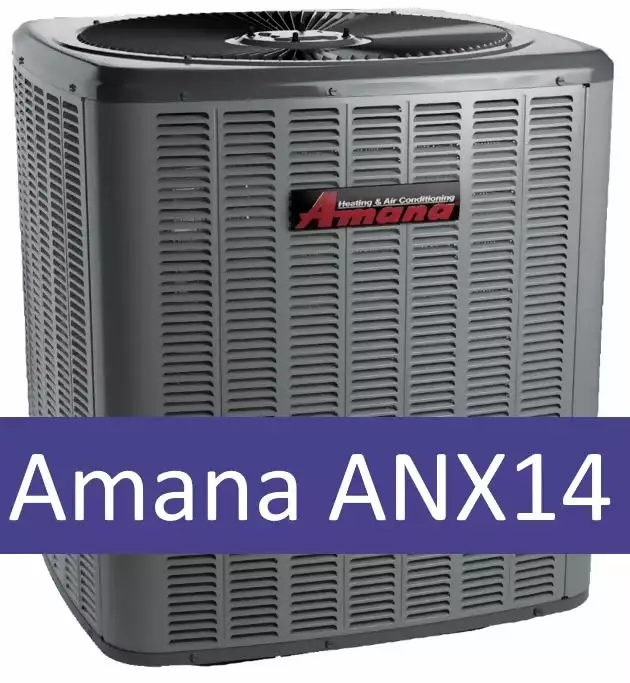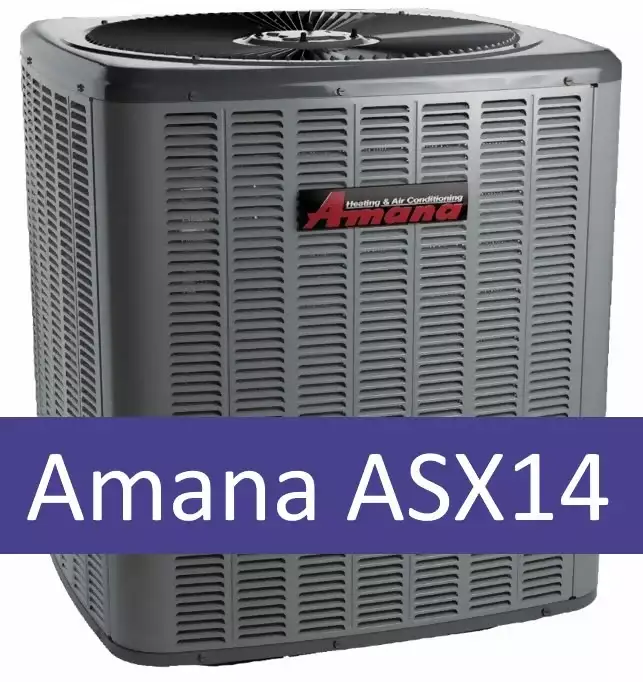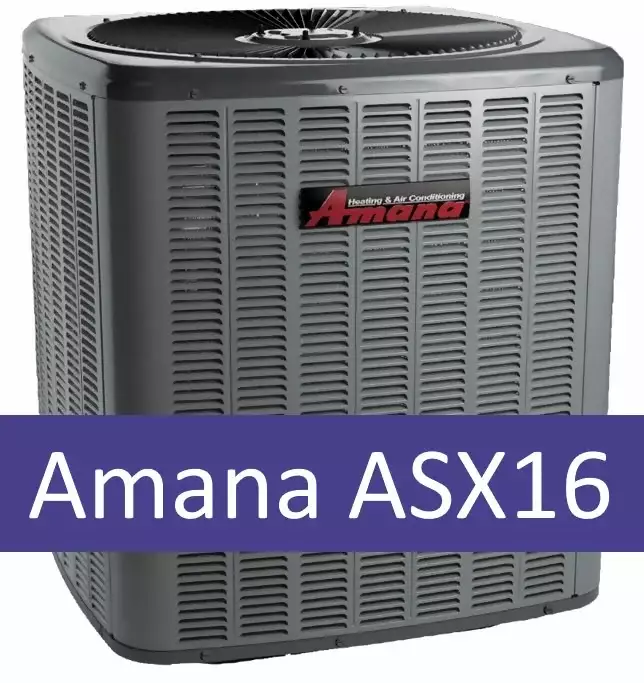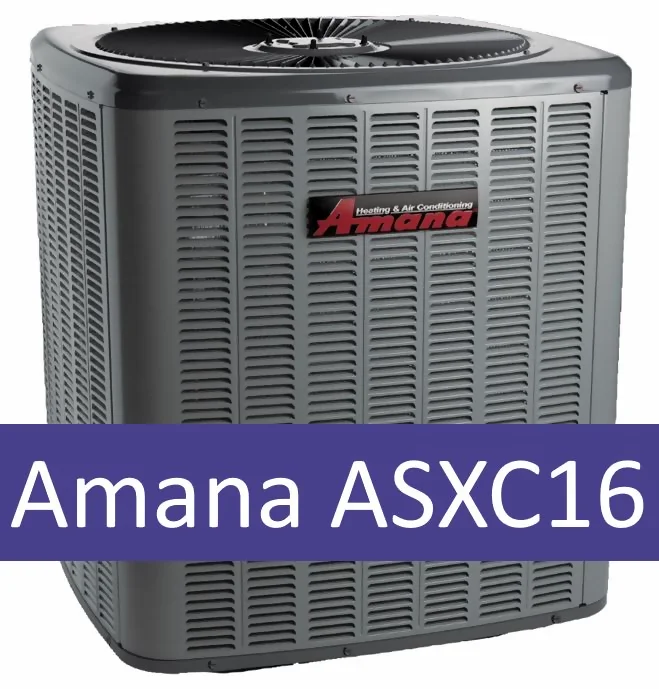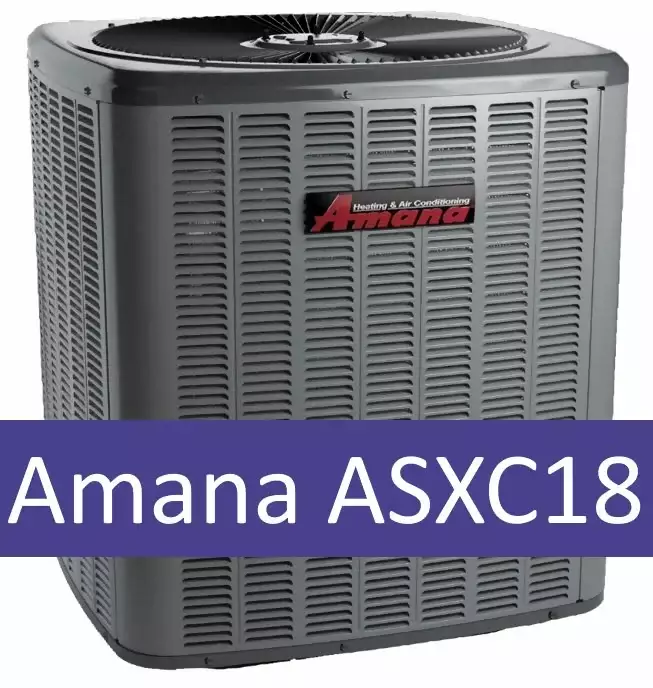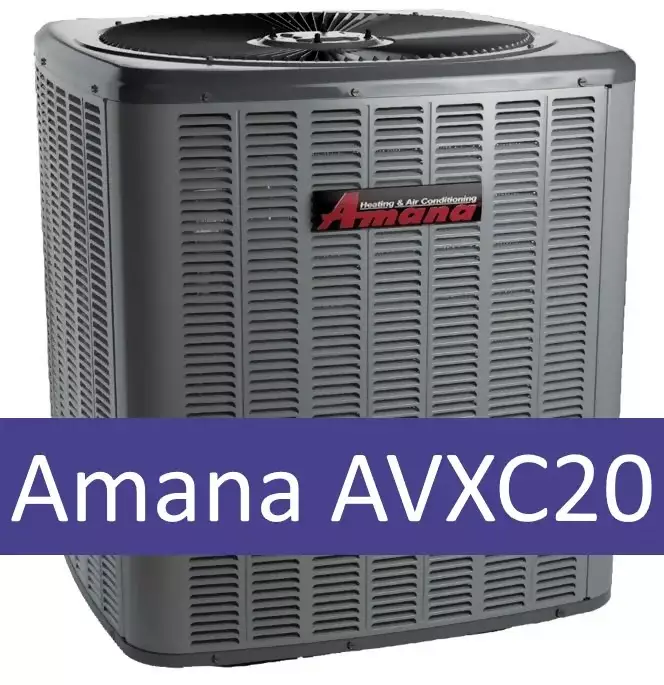Amana Air-Conditioners (AC) Buyers Guide near Oakville
Central Residential and Commercial Rooftop Unit Air conditioner Repair
Oakville ON » Amana Air-Conditioners (AC) Buyers Guide
- Air Conditioner (AC) Installation
- Air Conditioner (AC) Repair
- Air Compressor Repair Service
- Air Conditioner (AC) Maintenance
- Air Handler Installation
- Air Handler Repair
- Amana Air-Conditioners (AC) Buyers Guide
- Keeprite® Air Conditioners (AC) Buyers Guide
- Daikin Whole Home Air-Conditioners (AC) Buyers Guide
- Daikin Whole Home Air Handlers & Coils Buyer’s Guide
- Daikin Single-Zone Ductless Air Conditioners Buyer’s Guide
Your household investment in a new air-conditioner is a costly affair, and it’s absolutely vital that you have the information to make the right buying decision about your unit. This Amana Air Conditioners Buyers Guide reveals plenty of things about the Amana brand and its different ac models.
You’ll know about warranty information applicable to the different models, Seasonal Energy Efficiency Ratio (SEER) ratings, features, and much more. For example, Amana offers 8 central ACs with efficiency ratings from 14 SEER to 24.5 SEER with prices ranging from $2600 to $9200 for the condensing unit, refrigerant line, and indoor coil. Topcare Hvac of Oakville is a supplier of Amana Heating and Air Conditioning.
Our Amana Air Conditioning technicians have installed and repaired Amana ACs near Sunningdale, West Oakville, Kent Gardens, and Speers Road in Oakville Ontario. We hope with this Amana Air Conditioners Buyers Guide for Oakville residence, you will be able to make better decision as to which model would be best for you to purchase and to proceed with our Oakville Air Conditioner Installation service.
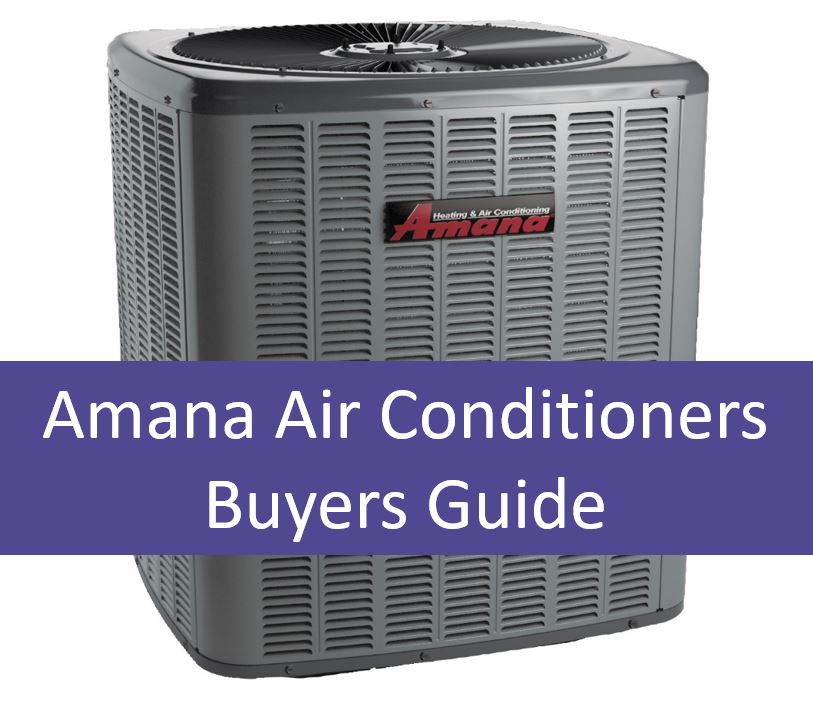
Does Amana offer exclusive AC features?
Copeland CoreSense Diagnostics®
This advanced diagnostic system is one of salient features of Amana air conditioners. The technology helps monitor system operations, check and diagnose problems, offer troubleshooting guidance, and advise on repairs when needed.
The system has an advanced feature where it shuts down the cooling system when it senses an issue with the potential to damage your compressor. This saves you money and helps you avoid all the possible headaches you meet down the road.
ComfortBridge® Technology
Amana gas furnaces improve performance with the ComfortBridge technology. Gain access to this feature by pairing a compatible gas furnace with your Amana air conditioner. The ComfortBridge technology uses gathered data to monitor the HVAC system and make system adjustments. This helps improve comfort, increases energy efficiency, and reduces energy use.
Quiet Performance™
What are the different types of Amana ACs and their specifications?
Series 1: Amana ASX13/ANX13, ASX14/ANX14, and ASX16
Built-in Copeland CoreSense Diagnostics sustain efficient cooling capacity and sustain quiet operations with a sound-control top on a heavy-gauge galvanized steel enclosure.
Amana ANX13
Air Conditioner Type: Single-stage, split system
SEER: 14
Energy Star Rating: None
Amana ASX13
Air Conditioner Type: Single-stage, split system
SEER: 14
Energy Star Rating: None
Amana ANX14
SEER: 15
Energy Star Rating: None
Amana ASX14
SEER: 15
Energy Star Rating: None
Amana ASX16
SEER: 16
Energy Star Rating: Yes
Series 2: Amana ASXC16 and ASXC18
You can repair problems with its Copeland CoreSense Diagnostics technology.
All ACs in this series are equipped with two-stage compressors. These are compatible with Amana’s patented ComfortBridge technology that continuously monitors the system’s performance to customize indoor comfort.
The ASXC18 has an electronically commutated two-speed condenser fan motor, while the ASXC16 has a two-speed condenser fan motor.
Amana uses its ComfortBridge technology with the ASXC16 when a new AC is paired with an existing Amana gas furnace. This helps reduce cooling energy levels with automatic adjustments.
Amana ASXC16
SEER: 17
Energy Star Rating: Yes
Amana ASXC18
SEER: 18
Energy Star Rating: Yes
Series 3: Amana AVXC20
This is the only Amana AC with a variable-speed scroll and swing compressor that ensures maximum comfort and efficiency.
The AVXC20 employs diagnostic monitoring technologies and has features like the variable-speed ECM condenser fan motor that sustains optimum room temperature in combination with Amana’s ComfortBridge technology.
No wonder the Amana AVXC20 won the ENERGY STAR® Most Efficient 2019 award.
Amana AVXC20
SEER: 24.5
Energy Star Rating: Yes
Amana Air Conditioning – Frequently Asked Questions – FAQs
Who owns Amana HVAC?
Daikin Industries Ltd., the parent company of Goodman, owns Amana HVAC.
Where are Amana air conditioners made?
Amana makes its air conditioners at the Daikin Texas Technology Park, a $400 million, 4.2 million sq. ft. facility just outside Houston in Texas. This facility includes Amana’s manufacturing, engineering, marketing, logistics, and sales units.
What’s HSPF on a heat pump?
Heating Seasonal Performance Factor or HSPF is to a heating system what SEER is to a cooling system. HSPF is the heat pump efficiency measurement in heating mode, while SEER is heat pump efficiency measurement in cooling mode.
What is AFUE?
The abbreviation AFUE stands for the Annual Fuel Utilization Efficiency ratio. AFUE measures rate furnace efficiencies in percentage by dividing the heat output by heat input ratio. This measurement clarifies how well your furnace consumes propane, natural gas, or fuel to produce heat. Your furnace efficiency increases when the AFUE percentage rate increases. This helps lower fuel costs.
How do you use these heat pump and air conditioner ratings?
The Air Conditioning, Heating, & Refrigeration Institute or AHRI Directory of Certified Product Performance contains rated heating and cooling values for heat pumps and air conditioners. These ratings help understand how your split system, which is the unit outside your home, matches with your indoor AC unit and/or furnace.
The directory offers valuable information on “active” models, those in production, and those that are no longer in production available but “production stopped” or “discontinued”.
Why choose the Amana brand of air-conditioners?
Amana offers many advantages that make people take a look at the brand. You’ll find a selection of affordable to high-end air-conditioners with even the lower end units equipped with a 14 SEER rating.
People have this one thing to say about Amana air-conditioners – maintain your unit the right way and you’ll see many comfortable cooling seasons go by.
You’ll find that you get exclusive features with most units when you probe into the Amana air-conditioner pros and cons. There’s no environmental pollution, thanks to the refrigerant the brand uses.
Some of Amana’s unique features are broken down into four categories:
Humidity Management
Longer cycles are produced when your AC unit operates at less than 100% capacity. This is known as staged cooling as a result of which the air circulates around the cooled indoor coil at a rate that helps the coil remove more moisture from the room.
Two-stage Amana air conditioners therefore offer a good balance between optimum humidity control even in the muggiest of climates and affordability.
Energy Management
The compressor is the key that maintains good energy efficiency, works silently, sustains optimum climate control, and makes this AC affordable.
Amana comes up with three compressor performance levels.
Single-stage compressor: Models using these compressors are affordable but are less efficient when it comes to cooling capacity, as they run on full blast all the time.
2-stage compressor: This compressor runs at 65% to 90% capacity and is use in the ASXC16 (17 SEER) and ASXC18 (19 SEER).
This helps reduce the power and energy use, making this compressor less efficient than the variable speed unit but more efficient than the single-stage models.
Variable-Capacity Compressor: Amana uses the modulating or variable speed/capacity compressor with its AVXC20 model.
This result was possible after Daikin took ownership of Amana. Daikin uses cutting edge technologies in the development of its compressors.
Variable-speed compressors are used in heat pumps and ductless ACs. The compressor run at 35% to 100% capacity using Comfort Speed, a technology that allows the system to supply the right cooling amount needed to meet the thermostat set point.
There’s no energy wastage, which makes this Amana offer an efficient system.
Sound Management
The Amana condensing unit has insulation within and sound blankets around the body to lower noise levels. These features are similar to what you find in other brands. You get average results with these models.
Choose one of the variable speed or two-stage units running at lower speed/stage when you factor in sound in your buying decision. Both run quieter than single-stage air-conditioners.
Comfort Management
Use comfort management as the way to achieve climate control. Dry and cool air is better than hot and humid air. This section deals with comfort management in AC systems and the climate efficiency level/performance level of ACs to control energy costs. You achieve similar climate control and efficiency levels.
Enhanced Compressor Performance: The variable capacity compressor sustains the right temperature balance in most air conditioning systems. This compressor removes more humidity than both the single-stage and two-stage air conditioning systems.
The compressor runs at a speed that the thermostat demands to sustain optimum temperature.
AC cycles are longer in a variable-capacity compressor than single or two-stage units. This results in better humidity control, making it possible to control humidity levels better.
Longer air cycles allow the system to circulate air better. The condenser coil is able to drain away more moisture.
2-Stage Compressors and Single-Stage Units: The two-stage unit has better temperature and humidity control than a single-stage AC unit. Both, however, lag behind the Amana AVXC20 air conditioner in climate management.
The brand uses its ComfortBridge technology in three of its models to optimize climate control.
Amana and Goodman optimize climate control by linking two-stage and variable capacity air conditioners with their furnace.
The ComfortBridge guide explains how the Goodman/Amana system uses its technology in other components and not the thermostat.
Data is transferred between the AC and the furnace control board, two-way communication that regulates the speed at which the compressor unit runs.
The thermostat establishes one-way communication to control temperature in standard system ACs without sending any data back.
System upgrade cost for the thermostat, AC, and furnace exceeds $1000, based on size and model.
A two-stage unit is slightly less efficient than this upgrade in producing the same indoor comfort. Reduced energy bills cannot justify the added cost you pay for the equipment and system over the course of time.
Your concerns about a smart home solution fades away when you use SmartBridge, a smart Wi-Fi app technology with the ability to control connected devices like appliances, security, lighting, cooling/heating functions.
Are there problems or cons with Amana ACs that you must note?
The Amana communication technology is a bit of an issue.
For example, a 10-year-old 4-ton Amana/Goodman AC system equipped with Comfort Net creates issues with communication error codes. Nothing less than 2 to 3 service calls set this remote operation right when it’s linked with the Honeywell Redlink system.
The cost digs into savings you otherwise make from replacement of components, service, and other system benefits.
Is Amana a good brand for AC?
Amana offers air conditioners that are powerful and equipped with impressive features. Be wary a bit about the installation costs, but these units are affordable and efficient. Amana’s warranties, however, make your investment more worthwhile.
How long does an Amana air conditioner last?
The Amana air conditioner is backed by a warranty that covers all parts and the compressor, which is one of the most vital air conditioner components that does pinch your pocket when things go out of place.
You get the best air conditioner warranties for the top four Amana models including the ASX16, ASXC16, AXSC18, and AVXC20. The original owner gets a lifetime unit replacement warranty on the compressors in those units.
The other models are covered with 10-year compressor and 2-year unit replacement warranties. Amana offers a whole new condensing unit instead of just a new compressor when your compressor fails while still in warranty. 10-year warranties are offered on other Amana AC parts.
How much does an Amana air conditioner cost?
Amana Air Conditioner Prices
The average price range of $2790 to $9500 (with installation) is a number to help you arrive at your final cooling system cost. A lot of other factors influence the final price you pay for your air conditioner.
Here are a few things to consider:
• Efficiency rating
• Where in Canada? Rural vs urban area, licensing requirements, HVAC competition
• Deals or promotions on offer
• Cooling output and unit size
• Installation complications
• Rebates like energy efficiency
Amana AC Prices in Canada (Updated for 2021)
All the listed Amana models are priced using the same criteria. For example, each of these have the same AC size, 2.5-ton outdoor condenser, and matching indoor evaporator coil.
None of this pricing includes the cost of a handler or home furnace but only AC and cooling systems. SEER ratings are determined by matching the unit with the correct air handler and evaporator coil.
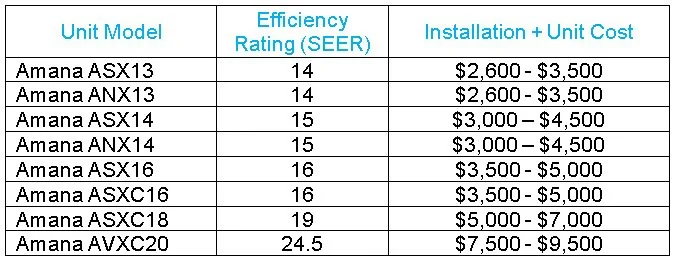
Amana Vs Goodman AC, which is better?
Both Goodman and Amana have 5 similar offers, but Amana has three other models as well.
The difference is that Amana offers better warranty terms on most of its ACs, except one or two tiers.
For instance, Amana offers its lifetime AC replacement warranty on all its models, but Goodman offers this on just a few. That’s why some Amana models with their better warranties cost $300 or more than a similar Goodman version.
This is how both brands compare when you take warranty terms for compressors and other parts into consideration.
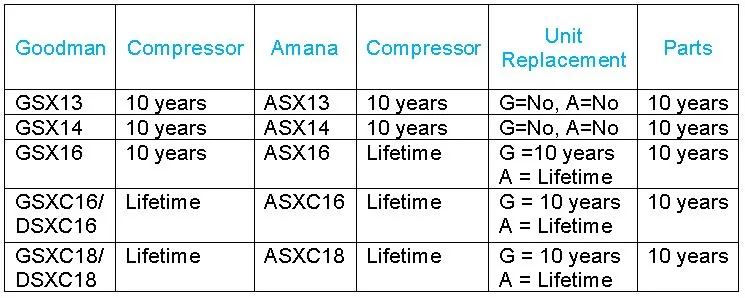
How do you discover the age of your HVAC unit?
There’s an easy way to find out when your HVAC unit was installed.
Determine the age or the date of manufacture/production of your Amana HVAC equipment by looking for the serial number found on the data plate.
Check for the data plate or nameplate on your HVAC condenser box found outside your home.
You’ll come across one of these three styles.
• Style 1: 0108999999
The first two digits in this 10-digit serial number denote the year of manufacture, and next two digits denote the month it was produced.
• Style 2: 95-99999
The first two digits in this 8-digit serial number denote the year of manufacture.
• Style 3: 020699999
The first two digits in this 9-digit serial number denote the year of manufacture and the next two digits the month it was produced.
What is the proper size Amana HVAC system for your home?
Several factors need due consideration to size up the equipment load of your Amana HVAC system.
Window size, ceiling height, placement, construction, and dozens of other variables are considered to determine the heating and/or cooling system you need.
This is where you need a HVAC professional to conduct load calculation, the foundation of your HVAC system.
Why should you purchase a new air conditioning or heating system?
Your local Amana HVAC contractor understands that investing in a heating or air-conditioning system is a major decision.
Investing in a new unit makes sense when your existing system is inefficient, old, or needs constant repairs. There are long-term benefits to consider. Your new system is around 60% more efficient than a unit bought 10 years ago.
Should you zone your home to fulfil heating and cooling requirements?
Zoning your home helps you identify common cooling and heating areas in systems that use ducts.
Zoning enables you to make individual heating and cooling adjustments when they’re not needed in certain parts of your home. This helps you spend less money, as you lower your energy costs.
Set individual zone temperatures to achieve the comfort level you desire across your zoning system. The Amana equipment and zone dampers achieve the rest on complete auto.
How to find an Amana system that’s right for you?
Your Amana brand dealer has a broad degree of air conditioning knowledge and the experience needed to help you choose the best cooling and heating system that fulfils your specific needs.
There are several functionality factors that influence the selection of your system. These factors include utility costs; age, size, and number of rooms in your home; available rebate programs/utility incentive; and your regional climate.
Amana brand dealers use the latest technology to cover all these factors and help you choose the ideal system for your home.
The trend is for consumers to choose a new unit with efficiency ratings that exceed the ratings on their existing replaceable system.
Replacing a 10- to15-year-old unit helps reduce your electricity or natural gas costs by 30 to 50%.
Please rate our website
Let us improve this!
Tell us how we can improve?
TOPCARE HVAC
- Home
- About
- Industries
- Services
- Air Conditioning
- Air Conditioner Installation
- Air Conditioner Repair
- Air Compressor Repair Service
- Air Conditioner Maintenance
- Air Handler Installation
- Air Handler Repair
- Amana Air-Conditioners (AC) Buyers Guide
- Daikin Single-Zone Ductless Air Conditioners Buyer’s Guide
- Daikin Whole Home Air-Conditioners (AC) Buyers Guide
- Daikin Whole Home Air Handlers & Coils Buyer’s Guide
- Keeprite® Air Conditioners (AC) Buyers Guide
- Boiler
- Boiler Installation
- Boiler Repair
- Boiler Maintenance
- Furnace
- Furnace Installation
- Furnace Repair
- Furnace Maintenance
- Amana Gas Furnace: Complete Furnace Reviews and Buying Guide
- Daikin Whole Home Gas Furnace Buyer’s Guide
- Goodman Gas Furnace Ultimate Buyer’s Guide
- KeepRite Furnace Review and Ultimate Buying Guide
- Lennox Gas Furnace Ultimate Buyer’s Guide
- Heat Pump
- Heat Pump Installation
- Heat Pump Repair
- Amana Heat Pumps Buyer’s Guide
- Daikin Single-Zone Ductless Heat Pump Buyer’s Guide
- Daikin Whole Home Heat Pump Buyer’s Guide
- Humidifier
- Humidifier Installation
- Humidifier Repair
- HVAC
- HVAC Installation and Setup
- HVAC Repair and Restoration
- HVAC Maintenance and Preservation
- Water Heater
- Water Heater Installation and Repair
- Tankless Water Heater Installation and Repair
- Commercial Services
- Commercial Rooftop HVAC Units
- Commercial Walk-In Cooler & Freezer
- Industrial Commercial Refrigeration Repair
- Commercial And Residential Ductwork, Ducting
- Other Services
- Oakville Fireplace, Gas Installation Service
- Natural Gas Pipeline Install and Repair Service
- Pool Heaters Installation and Repair Service
- Smart Thermostat Installation and Replacement
- Locations
- Brands
- Blog
- Contact
Recent Posts
About TopCare Hvac
At TopCare HVAC, we are providing the heating and air conditioning repair & its installation services to homes and businesses. When any of your air conditioning or heating system is not working properly, our professional technicians are here to assist you with the fast, responsive, and reliable service.

